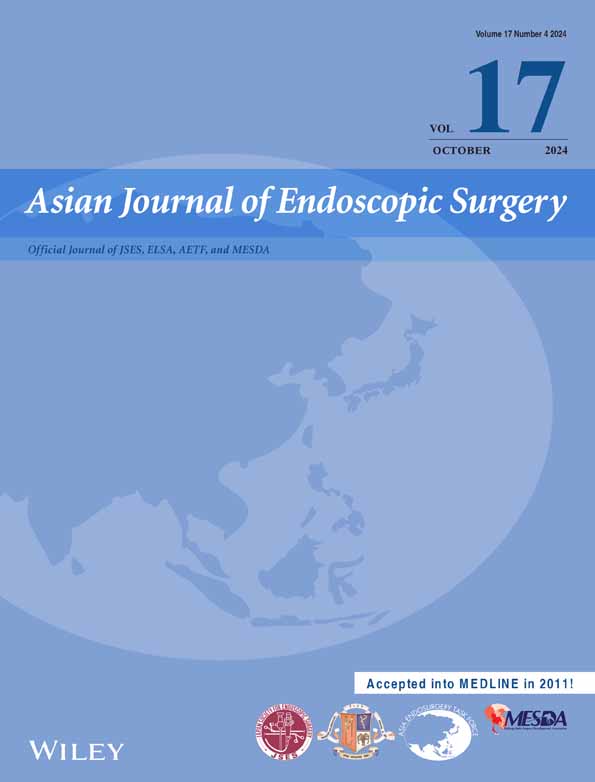Laparoscopic colectomy for patients with poor American Society of Anesthesiology classifications
Abstract
Introduction
The American Society of Anesthesiologists (ASA) classification is used to assess the fitness of a patient for surgery. Whether laparoscopic surgery is appropriate for colorectal cancer patients with poor ASA performance status (PS) remains unclear.
Methods
Among 4585 patients who underwent colorectal surgery between 2016 and 2023, this study retrospectively reviewed all 458 patients with ASA-PS ≥3. Patients were divided into two groups: patients treated by open surgery (O group, n = 80); and patients treated by laparoscopic surgery (L group, n = 378). We investigated the impact of surgical approach on postoperative complications in patients with colorectal cancer and ASA-PS ≥3.
Results
Operation time was longer (170 min vs. 233 min, p < .001), blood loss was less (156 mL vs. 23 mL, p < .001), postoperative complications were less frequent (40.0% vs. 25.1%, p = .008), and hospital stay was shorter (23 days vs. 14 days, p < .001) in L group. Univariate analysis revealed rectal cancer, open surgery, longer operation time, and blood loss as factors significantly associated with postoperative complications. Multivariate analysis revealed open surgery (odds ratio [OR] 2.100, 95% confidence interval [CI] 1.164–3.788; p = .013) and longer operation time (OR 1.747, 95% CI 1.098–2.778; p = .018) as independent predictors of postoperative complications.
Conclusion
Laparoscopic surgery provides favorable outcomes for colorectal cancer patients with poor ASA-PS.
CONFLICT OF INTEREST STATEMENT
Dr. Keitaro Matsumoto is an Editorial Board member of ASES Journal and a co-author of this article. To minimize bias, he was excluded from all editorial decision-making related to the acceptance of this article for publication.
Open Research
DATA AVAILABILITY STATEMENT
The data that support the findings of this study are available on request from the corresponding author. The data are not publicly available due to privacy or ethical restrictions.




